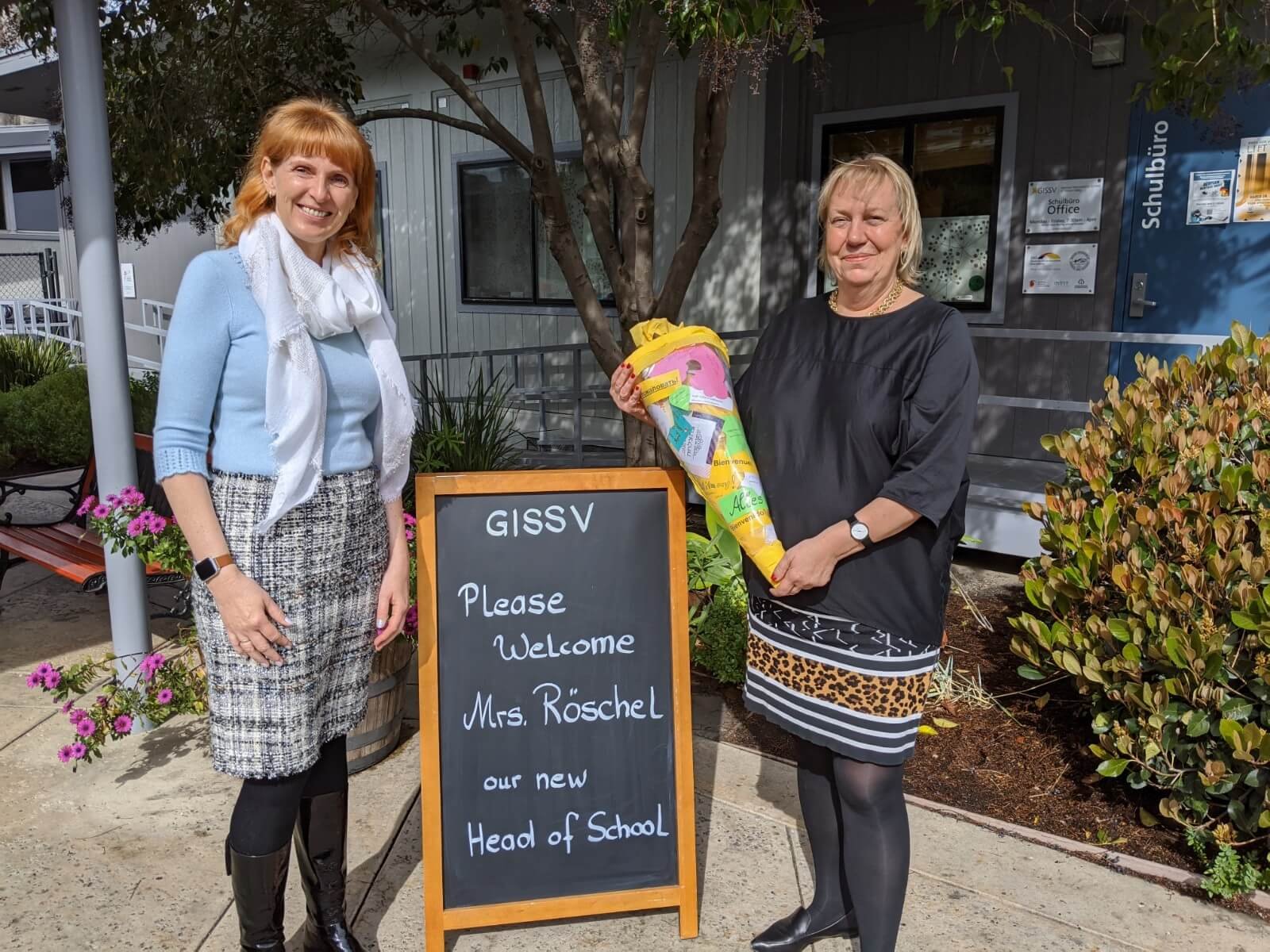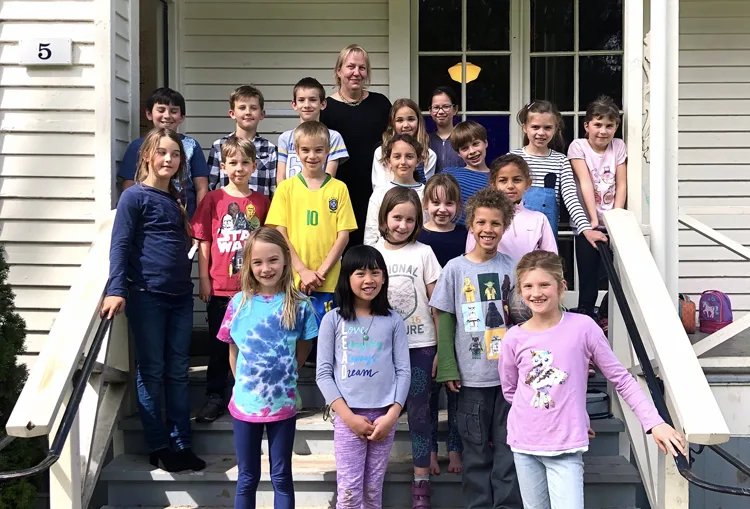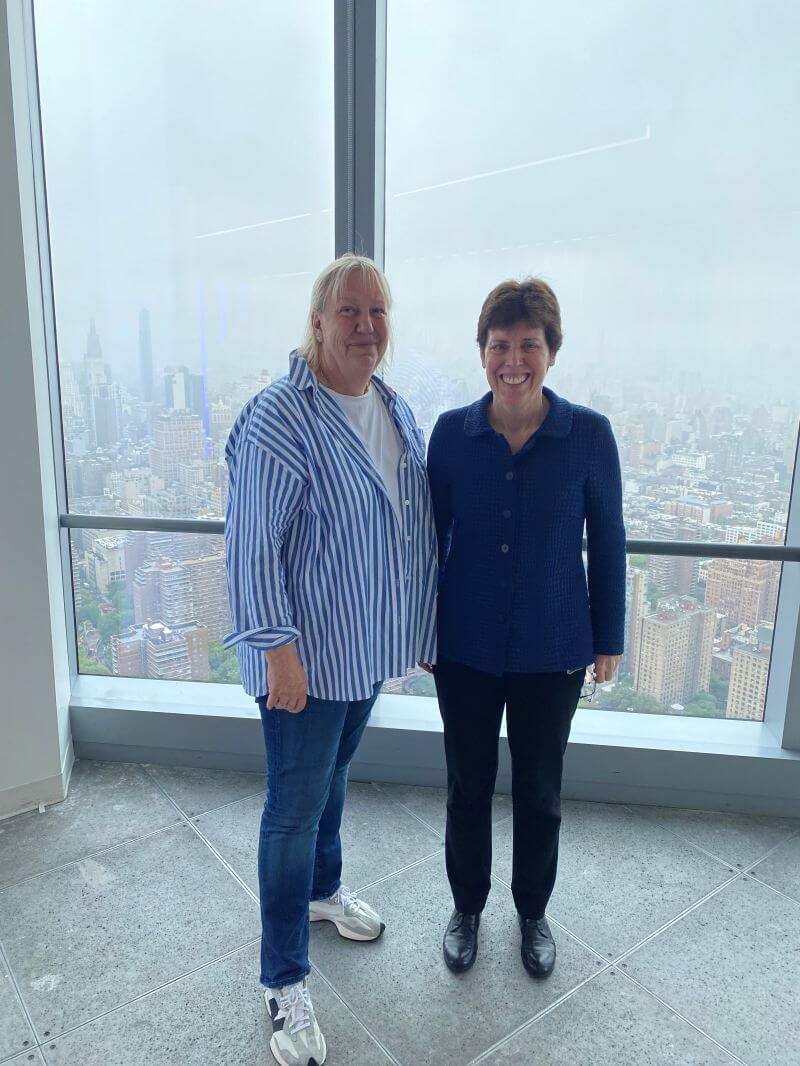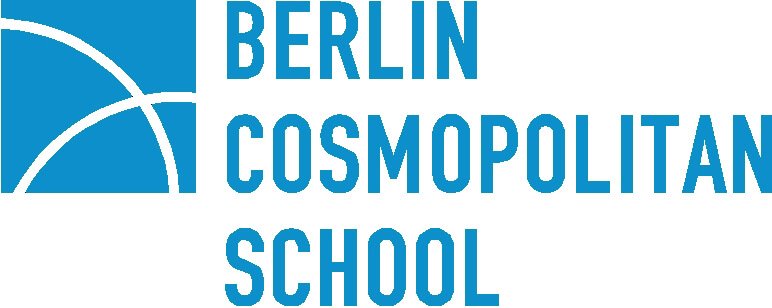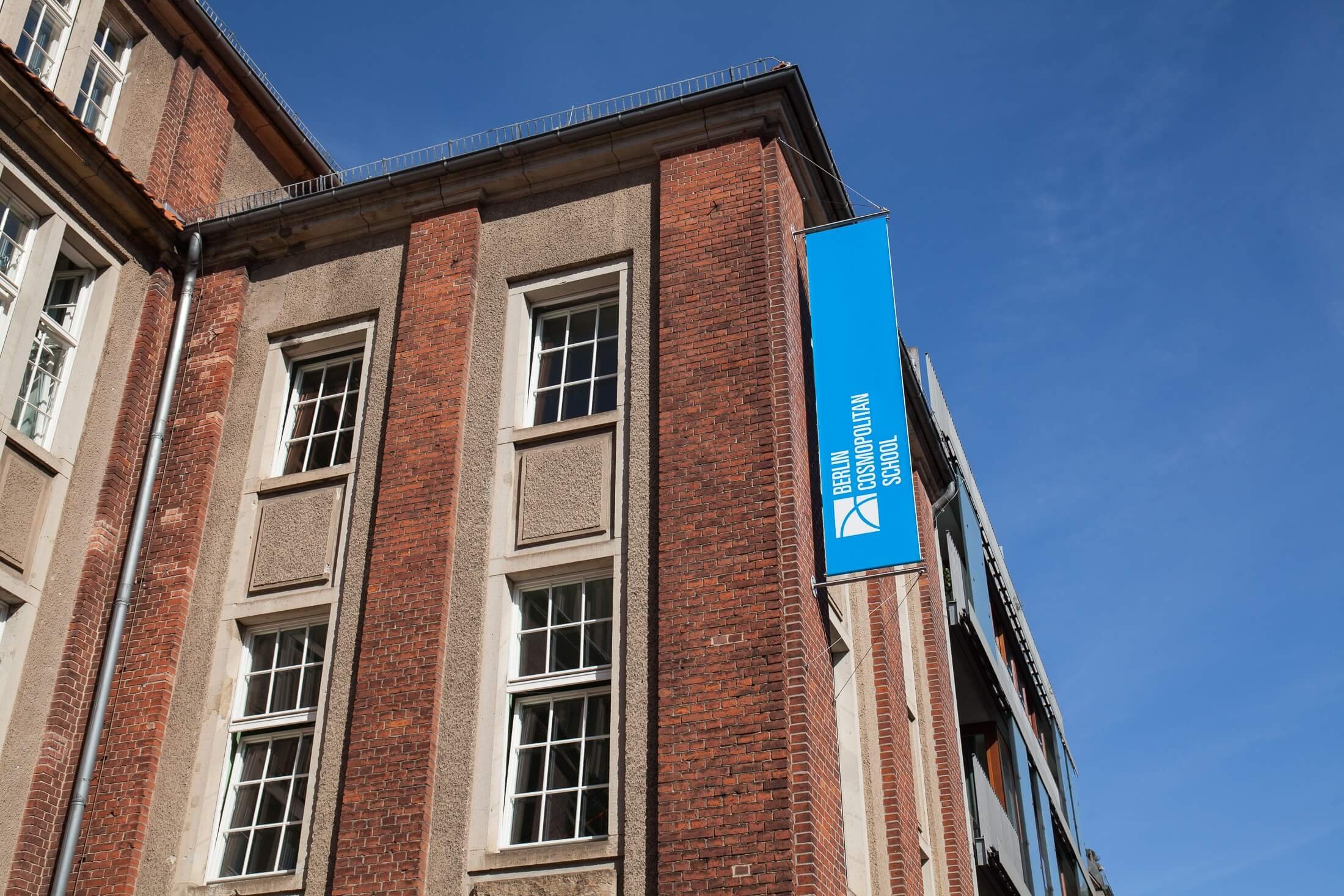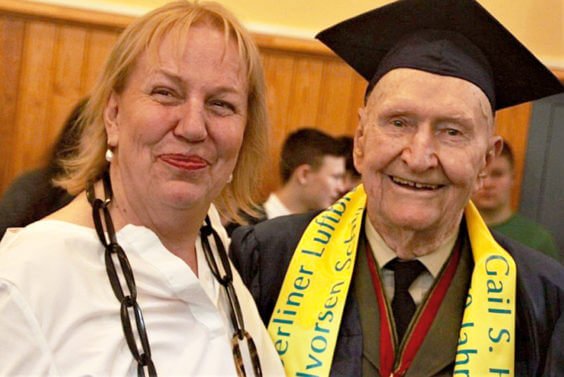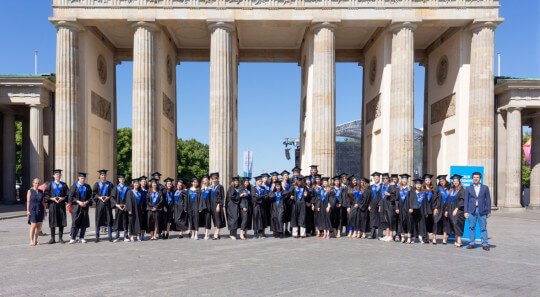The Power of Schools in Crafting Bilingual Citizens
Intro by Michelle Glorieux, CEO of TA-DA!
Welcome to part II of Day 15 of our Bilingual Family Expert Blogathon
Parenting, for me, has always been a journey filled with questions.
Am I offering my child the right experiences? The best tools for his future?
The beauty of this journey is that while it is unique for each of us, the core questions tend to remain universal.
One of the most rewarding aspects of my role at TA-DA! has been the privilege of connecting with remarkable individuals like Kathrin Röschel, the former director of the German International Schools of Silicon Valley.
Our collaboration with this wonderful international school in San Francisco Bay granted me a closer look at the profound influence dedicated educators wield in shaping our children's destinies. Witnessing a community so resolutely committed to nurturing well-rounded, global thinkers was deeply inspiring. (Alongside GISSV, we produced three engaging German language adventures for toddlers, featuring the authentic voices of their students and teachers personally recorded on their Mountain View campus.)
Recently, Kathrin embarked on a new journey, returning to her birthplace of Germany to assume the role of Director at the Berlin Cosmopolitan School. This internationally esteemed institution is also renowned for its approach to bilingual education and the cultivation of 21st-century globally conscious citizens.
Kathrin's personal experiences, having grown up in a divided Germany, provide a compelling backdrop to her perspective on bilingual education.
Today, alongside her, and with a touch of poetry, we shall delve into the pivotal role that schools can play in shaping your child's bilingual or multilingual education.
This subject is at the heart of my own family's journey, as we, a mixed family, raise our child in languages that are foreign to both my husband and myself.
I know that I am not alone in this quest.
Wendy Williams, the author of "The Globalization of Love," a book exploring multicultural romance and marriage, as well as a TEDx speaker of the same name, aptly stated,
The Transformative Power of Bilingual Schools
Statistics Highlight:
In the U.S., 15% of marriages unite couples from different nations and cultures. For these families, bilingual education isn't just beneficial—it's essential.
"People from all corners of the globe are falling in love with individuals from everywhere else."
Williams' research reveals compelling statistics:
In Korea, 10% of marriages unite couples from different nations and cultures, and in the United States, it accounts for a noteworthy 15% of the total population.
For families navigating such multicultural dynamics, immersion in a school environment can be transformative.
As you continue reading, allow Kathrin's valuable insights help us understand the important role that schools can play in shaping our children's bilingual journey.
[While preserving Kathrin's distinct voice and narrative, we have introduced supplementary sidebars to provide further context and additional insights.]
A Poetic Tale from East to West Germany
October 3 - German Unity Day
The Berlin Wall, a symbol of division that mirrors the gap in bilingual education today.
A special holiday for democracy worldwide, a special day for all Germans and yet also always, still such a very special day for all East Germans…
The GDR, the country I grew up in, no longer exists, and that's a good thing. But this country has of course shaped me, just as childhood shapes each of us in a special way. But there is another special aspect that still shapes me every day in my work and that concerns the wonderful topic that Michelle (of TA-DA!, the host of this blogathon), and many others of us are dealing with - bilingualism.
Anyone who knows a tiny bit about the GDR must inevitably ask themselves, how does this fit together? It doesn't!
Learning languages, and getting to know cultures through language would have fueled this irrepressible desire to get to know the world, to tear down walls, to be free.
That wasn't planned in the country I came from.
How can you educate bilingually?
How can you do that in schools, or in families for that matter, when even the teachers don't have first-hand knowledge of the language?
💡 Did You Know?
Studies have consistently shown that students in bilingual education programs outperform their peers in cognitive tasks.
Notably:
• Enhanced problem-solving skills
• Better multitasking abilities
• Improved memory retention
Source: Bialystok, E. (2001). Bilingualism in development: Language, literacy, and cognition. Cambridge University Press.
My first son had just been born when the Wall came down. My daughter shortly after - already in the new, free, cosmopolitan Germany ...and of course I knew about the advantages of bilingual education and upbringing. But only theoretically.
What to do?
My English 'was hard-won, but anything but accent-free or even wordy.
My husband felt the same way.
Confidence in education? YES! In schools? Difficult given our experience, but YES!
Kathrin Röschel in action, fostering bilingual skills at GISSV
Finding an international, bilingual school for our kids? NOT so easy!
As for so many of you, the decision was first made to educate our own children - bilingual education including learning about the history, culture, and thinking that comes with language diversity.
Local to global - from experiences with our own children to changing schools…
I have started to teach my subject mathematics bilingually. Bilingual math turned my students into better mathematicians.
Next. No longer just teaching, but actively engaging in school leadership. Change. Yourself. The environment right along with it. Again and again.
The head is round so that thinking can change direction, they say. That's right!
Networked with many people who make school, I now lead bilingual schools for many years and educate world citizens - a dream has come true.
Not just like that.
It is possible.
We are changing our educational landscape one child at a time, at one school at a time.
Our youngest son is a native speaker of English and German - completely bilingual without his father or mother ever even speaking to him in a language other than German.
SCHOOLS can work miracles ...
well, or do their job right, if it finally becomes the norm to teach bilingually, academically challenging, and yet always child-centered.
Be brave!
If bilingualism is not yet at home for you, find it for your children, your students ...
There are great schools out there with bilingual, cosmopolitan education and if yours is not yet, help make it that way.
There can't be enough of them.
Graduates celebrate their bilingual journey at Kathrin's new school in Berlin."
💡Did You Know?
Bilingual students are more likely to graduate high school, attend college, exhibit enhanced communication skills, and have better job opportunities in a globalized world.
Source: Callahan, R., & Gándara, P. (Eds.). (2014). The Bilingual Advantage: Language, Literacy and the U.S. Labor Market. Multilingual Matters.
💡 And…
A 2017 study by the National Education Association found that high schools with robust bilingual or dual-language programs had dropout rates that were 40% lower than schools without such programs.
By engaging students in meaningful, culturally relevant curricula, bilingual programs not only teach a second language but also foster a love for learning.
💡 A 2019 report by MIT economists highlighted that in the U.S., bilingual employees earn, on average, 5-20% more per hour than their monolingual counterparts. As the global marketplace becomes more integrated, bilingualism offers a tangible advantage in career opportunities and earning potential.
Source: MIT Economics Department. (2019). Economic benefits of bilingualism. Labor Market Studies Publications.
💡 A comprehensive 2020 study in the U.S. revealed that students in dual-language programs were 63% more likely to achieve college-ready scores on standardized exams compared to those in monolingual programs.
Source: U.S. Department of Education. (2020). Bilingual education and college readiness. National Assessment of Educational Progress.
A 2021 study from the University of Washington found that bilingual children outperformed their monolingual peers in tasks that required attention, working memory, and cognitive flexibility. These enhanced cognitive skills are not just academic but can aid in problem-solving in real-world situations.
Source: University of Washington. (2021). Cognitive benefits of bilingualism. Department of Psychology Research Publications.
Kathrin's journey and insights remind us of the profound impact that education, particularly bilingual education, can have on our children's lives. In an increasingly interconnected world, the value of understanding multiple languages and cultures cannot be overstated. It's not just about speaking two languages; it's about cultivating a mindset that embraces diversity, promotes understanding, and fosters global citizenship.
For those who read Friday's piece by Fabrice Jaumont, you'll recall the empowering quotes that resonate deeply with parents:
"Parents are the secret weapon to successful bilingual education" and "When parents organize, they can make a difference."
These words highlight the pivotal role each of us can play in promoting bilingualism.
What Next? Your Voice Matters!
We've explored the profound impacts and statistical benefits of bilingual education. But how can you make it a reality for your family? Stay tuned for tomorrow's installment, "Making Bilingualism a Reality: A Parent's ACTION Plan."
Until then, share your bilingual journey or thoughts in the comments below. Together, we can make a difference.
Meet Kathrin Röschel, the trailblazer in bilingual education.
About Today’s Special Guest Contributor
Born in Germany, Kathrin Röschel is the head of the Secondary School at the Esteemed Berlin Cosmopolitan School. Prior to that, she was head of The German International School of Mountain View, California in Silicon Valley, a treasured educational partner of TA-D! Language Productions and with whom we have made all our German Talking Language Books to date.







